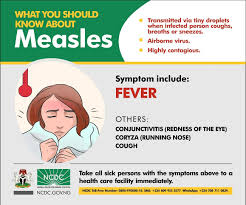Understanding Measles Symptoms and Their Importance

Introduction
Measles is a highly contagious viral infection that poses significant health risks, particularly for unvaccinated children and individuals with weakened immune systems. As outbreaks of measles continue to occur in various parts of the world, understanding the symptoms, and seeking prompt medical attention is crucial. This article explores the symptoms of measles, their implications for public health, and the importance of vaccination in controlling the disease.
What Are the Symptoms of Measles?
Measles symptoms usually appear 10 to 14 days after exposure to the virus. The initial symptoms often resemble those of a cold or flu, including:
- High Fever: A high fever is one of the first signs, often reaching 40 degrees Celsius (104 degrees Fahrenheit).
- Cough: A persistent cough is common, often dry and unproductive.
- Runny Nose: An inflamed nasal passage can lead to a runny nose, contributing to respiratory discomfort.
- Sore Throat: Similar to other viral illnesses, a sore throat may accompany the cough and nasal congestion.
- Conjunctivitis: Red, watery eyes are also a frequent symptom, as the virus can affect the eyes.
Approximately two to three days after the initial symptoms, a distinctive red rash typically appears. This rash usually starts at the hairline, moving downwards to the face and body. It may last for up to a week, gradually fading as the individual recovers. Some patients may also develop Koplik spots—small, white lesions inside the mouth—that can be a telltale sign of measles.
The Importance of Vaccination
Vaccination is the most effective way to prevent measles. The measles, mumps, and rubella (MMR) vaccine is recommended for children, with the first dose typically given at 12 to 15 months of age, followed by a second dose between ages 4 to 6. Immunization not only protects the individual but also contributes to herd immunity, reducing the spread of the virus within communities.
Conclusion
Recognizing the symptoms of measles is essential for timely diagnosis and treatment. With the increasing incidence of outbreaks, it is crucial for individuals, particularly parents and caregivers, to be aware of the signs and symptoms associated with this disease. Vaccination remains the most effective strategy in preventing measles; therefore, ensuring that children receive their vaccinations on time is a public health priority. The resurgence of measles highlights the importance of maintaining high vaccination rates to protect vulnerable populations and prevent future outbreaks.






